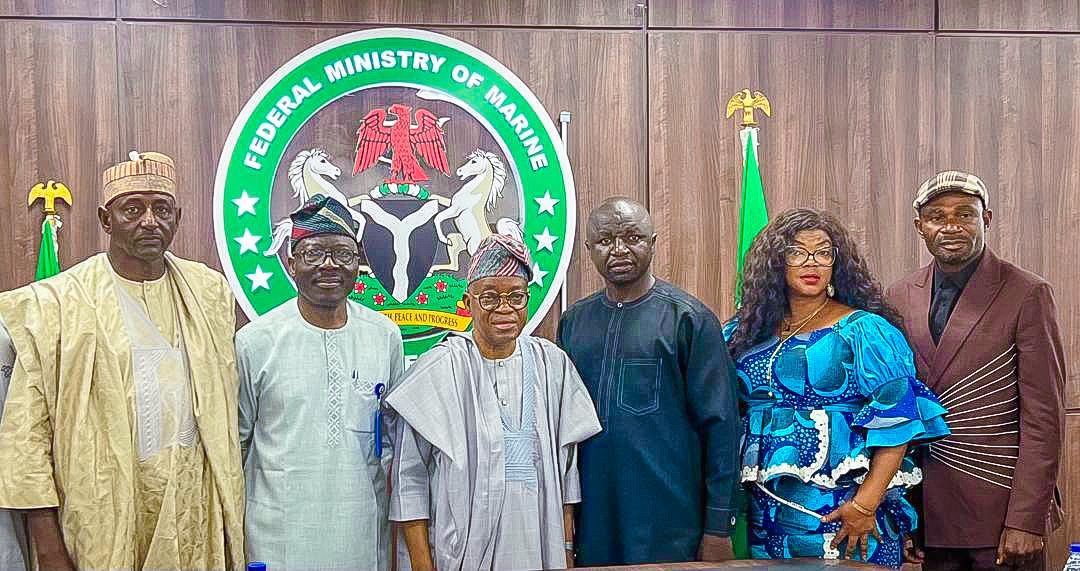Nigeria’s Minister of Marine and Blue Economy, Adegboyega Oyetola, has declared an ambitious plan to end the country’s reliance on fish importation by spearheading an aggressive campaign to boost local fish production. The bold move, unveiled during a high-level consultative meeting with fisheries cooperatives in Abuja, marks a turning point in the nation’s quest for food security, job creation, and economic diversification.
Speaking at the strategic gathering, Oyetola outlined the Federal Government’s determination to transform Nigeria’s aquaculture sector into a major driver of sustainable development and foreign exchange earnings. He emphasized that the time has come for Nigeria to break free from years of dependency on imported fish and chart a path toward full self-sufficiency in domestic production.
“Nigeria must chart a new course towards self-sufficiency in fish production,” the Minister stated, reaffirming the administration’s resolve to reposition the sector through targeted policies, technical support, and financial inclusion. He pledged that the government will scale up domestic fish production, drastically reduce importation, and build a robust, export-ready aquaculture industry.
The Abuja meeting brought together key players in Nigeria’s fisheries and aquaculture ecosystem, including representatives from the Fisheries Cooperative Federation of Nigeria (FCFN), Tilapia Aquaculture Developers Association of Nigeria (TADAN), Catfish Farmers Association of Nigeria (CAFAN), Women in Fish Farming and Aquaculture, and the Practicing Farmers Association of Nigeria. These stakeholders praised the initiative as timely, calling it a long-overdue intervention in a sector struggling with chronic underinvestment.
Oyetola announced that the Ministry is actively developing empowerment schemes to support women and youth in aquaculture. He revealed that start-up grants and other financial initiatives are already in motion, aligned with President Bola Ahmed Tinubu’s Renewed Hope Agenda, which emphasizes youth empowerment and economic transformation.
“Increasing youth participation in aquaculture is not only vital for food production but also a strategic solution to reducing unemployment,” Oyetola said, stressing the need for inclusive growth that leaves no one behind. The Minister also highlighted the importance of women in the value chain, affirming that their contributions will be amplified under the Ministry’s new action plan.
Participants raised urgent concerns affecting the sector, such as overfishing, poor access to affordable financing, high post-harvest losses, insufficient cold storage, poor transport infrastructure, multiple taxation, low youth engagement, and the skyrocketing cost of imported fish feed. In response, Oyetola provided strong assurances that the government is already engaging local and global partners to address these challenges comprehensively.
He disclosed that discussions are ongoing with the World Bank to unlock new financial support for fish farmers, while talks with the Nigerian Agricultural Insurance Corporation (NAIC) are set to provide affordable insurance coverage for players across the sector. In a bid to replicate success stories, the Minister also revealed that plans are underway to duplicate the Oyan Dam aquaculture model in multiple locations nationwide through collaboration with the Federal Ministry of Water Resources.
Read also:
- Oyetola breaks 20-year deadlock, orders immediate disbursement of Cabotage Vessel financing fund
- Oyetola reiterates FG’s commitment to harnessing potentials of marine economy
- Seafarers Day 2024: Oyetola, NIMASA DG Mobereola, others celebrate seafarers, pledge support
“This meeting is not the end , it is the beginning of a sustained and transformative dialogue,” Oyetola assured, urging stakeholders to remain engaged in the process that promises to reshape Nigeria’s aquaculture landscape.
The Permanent Secretary of the Ministry, Mr. Olufemi Oloruntola, who delivered the welcome address, said the meeting fulfilled a pledge made during the Ministry’s second-quarter stakeholders’ engagement in Lagos. He reiterated the Ministry’s commitment to forming strategic alliances with cooperative groups to drive inclusive economic growth.
Also speaking at the event, the Director of Fisheries and Aquaculture, Mr. Wellington Omoragbon, emphasized the need to strengthen institutions and adopt enterprise-driven models that will attract investment and significantly enhance productivity.
The consultative meeting ended on a high note, with widespread optimism that Nigeria is now on the path to becoming not just self-sufficient in fish production, but a potential net exporter in the near future. The energy, commitment, and clear policy direction showcased at the summit may just signal the dawn of a new era for Nigeria’s blue economy.







